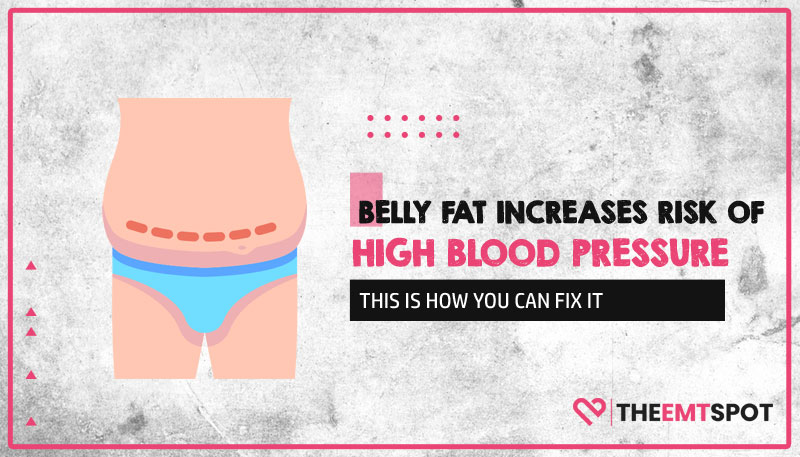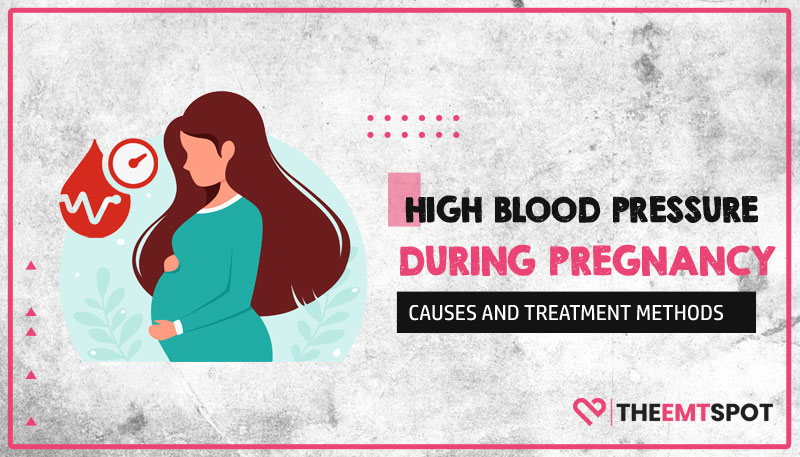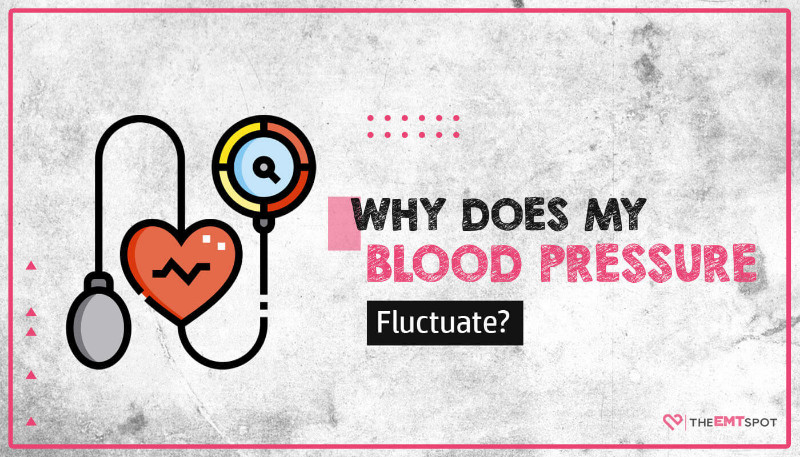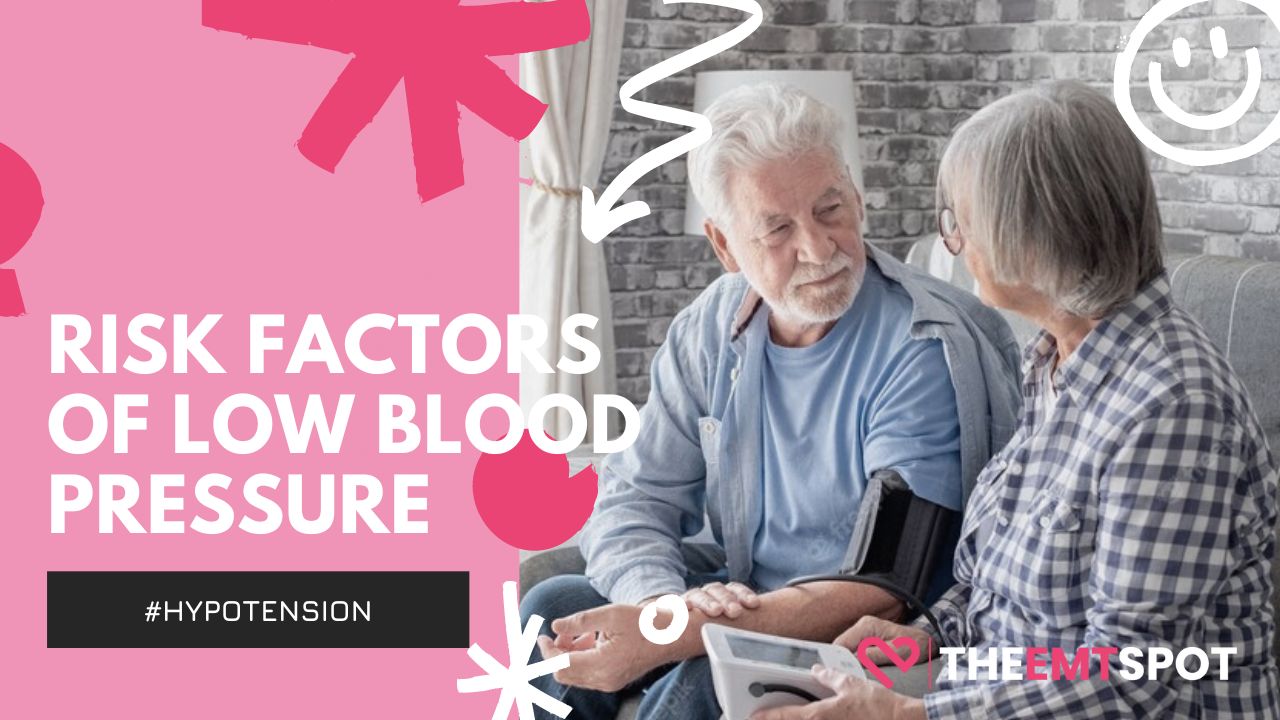Are you worried about that extra holiday belly fat you’re carrying? Read how it affects your heart health and how you can fix it.

Quick Summary
- Heart health is directly impacted by even the littlest of weight gains.
- A rise in belly fat causes an increase in blood pressure.
- Poor diet, lack of physical activity, genetics, stress, and hormonal imbalance are some factors that contribute to an increase in belly fat.
- Targeted workouts, healthy diets, proper sleep, and less stress can control belly fat.
Carrying around a little weekend or holiday weight is not a big deal for most of us. And it seems almost futile to worry about the weight we may eventually lose in the upcoming week’s hassle. But what is the hassle with your blood pressure and this little weight-on?
As newer studies find, the catch is that your heart health is directly impacted by even the smallest weight gains, especially in the abdominal region. Carrying this belly fat can cause your blood pressure to hike and may result in heart attacks or strokes.
Although it may not be true for everyone, the concern is valid for everyone. Experts point out the concern about the growing obesity among adults that has increased the risks of cardiovascular events among the masses.
Contents
How Does Small Weight Gain Raise Your Blood Pressure?
Enjoying with family and friends over the festival delicacies is something most of us are blessed with, and compromises don’t look good when it comes to family time.
But what are the health impacts of those indulgences? Are they fatal?
Many ask these questions after hearing that as small as 5 pounds of weight gain can impact heart health.
Blood pressure is an ultimate indicator of your heart health, and its fluctuation from the standard reading is a cause for concern.
When the Mayo Clinic conducted research to study the impact of small weight gains – as little as 5 pounds to 7 pounds – on heart health, they found a spike in blood pressure.
This raised concern among the experts because, since everyone knows about extra body weight and its harms, many do not pay attention to the small weight gain.
This is to note that where you put on weight is a determining factor in all this. When abdominal visceral fat increases, aka the increase in belly fat, the blood pressure of the individual rises.
Moreover, even healthy individuals prone to gaining belly fat are vulnerable to spiked blood pressure and other cardiovascular risks.
Understanding Belly Fat
Belly fat, less commonly known as visceral fat, is a variation of body fat that accumulates around the abdominal area and is stored deep within the abdominal cavity.
It is not the same as subcutaneous fat, which is the type of fat that lies just beneath the skin.
Belly fat differs from subcutaneous fat because it is directly linked to various health problems.
Several factors contribute to the accumulation of belly fat, including:
- Poor diet: Consuming a diet high in processed and unhealthy foods can lead to an increased amount of belly fat and weight gain in general.
- Lack of physical activity: If you have a sedentary lifestyle, it can lead to weight gain and the accumulation of belly fat.
- Genetics: Some people are predisposed to carrying excess weight, including belly fat, due to their genes.
- Hormonal imbalances: Hormonal imbalances, such as those associated with menopause, can lead to hiked belly fat.
- Stress: Chronic stress can cause the body to secrete cortisol, a hormone that adds to the weight and belly fat.
Too much belly fat can increase the risk of several health problems, such as heart disease and stroke. Moreover, the risk of diabetes also prevails as belly fat is associated with insulin resistance, which can double the risk of developing type 2 diabetes.
Belly fat has also been associated with a raised risk of specific types of cancer, such as colon and breast cancer.
And it’s understandable, as long as “too much” belly fat goes. But the surprising and worrying aspect is the small gain in belly fat that is very hard to manage.
Impact Of Belly Fat On Blood Pressure
The risks associated with having a few extra pounds on the scale may seem small, but they can have a significant impact on one’s health.
Systolic blood pressure, the pressure within the arteries when the heart beats, can be easily affected by small changes in lifestyle and body weight.
A normal systolic reading is considered to be less than 120 mm Hg. Still, high systolic blood pressure is known to be a major risk factor for cardiovascular disease, especially in individuals over the age of 50.
While the average blood pressure readings observed in recent studies remain within the normal levels for healthy individuals, the results suggest that it is easy for an individual’s blood pressure to be affected by short-term lifestyle changes, such as weight gain.
This highlights the importance of being aware of the risks of even a few extra pounds.
According to experts, public awareness of the adverse health effects of obesity is increasing. Still, most people are unaware of the risks associated with just a few extra pounds.
Individuals must understand the potential impact that even small weight changes can have on their health and take steps to maintain a healthy weight.
Moreover, it serves in their interest to actively monitor blood pressure levels and keep a tab on any fluctuations.
How To Reduce Belly Fat
Reducing belly fat doesn’t have to be a head-scratcher. It can easily be achieved through a combination of healthy lifestyle habits and consistency.
Healthy eating habits
Consuming a diet rich in whole, unprocessed foods and low in added sugars and saturated fats is the primary mantra for any weight loss regimen.
Focus on intaking plenty of fruits, vegetables, whole grains, lean proteins, and healthy fats.
Stay away from sugary drinks and restrict your intake of alcohol. And if high blood pressure is your concern, you can top your diet with natural blood pressure supplements.
Regular physical activity
Regular physical activity can assist you in burning calories, losing weight, and reducing belly fat. If you’re not a gym freak, aim for at least 30 minutes of moderate-intensity exercise daily, such as brisk walking.
Stress management
Stress hurts your body. Chronic stress can cause the release of the hormone cortisol, which has been associated with an increase in belly fat. Take therapy, find stress-relieving hobbies, and stick to them.
Getting enough sleep
Lack of sleep has been linked to increased body weight and belly fat. Aim for 7-9 hours of quality sleep per night to help regulate hormones and maintain a healthy weight, and thus, a healthy heart.
Remember, losing belly fat takes time and consistency, so be patient and stick to these healthy habits for the best results.
Wrapping Up
As suggested by studies, the risk of cardiovascular diseases increases with an increase in weight.
And now it’s revealed that even five pounds increase in belly fat can cause one to have increased blood pressure.
To maintain your belly fat, ensure that you take a healthy diet, get proper sleep, have less stress, and get enough exercise.





 Robin Backlund is a dedicated journalist and a medical student who has written several articles and essays exposing the falseness and hollowness of online resources in the medical science niche.
Robin Backlund is a dedicated journalist and a medical student who has written several articles and essays exposing the falseness and hollowness of online resources in the medical science niche.